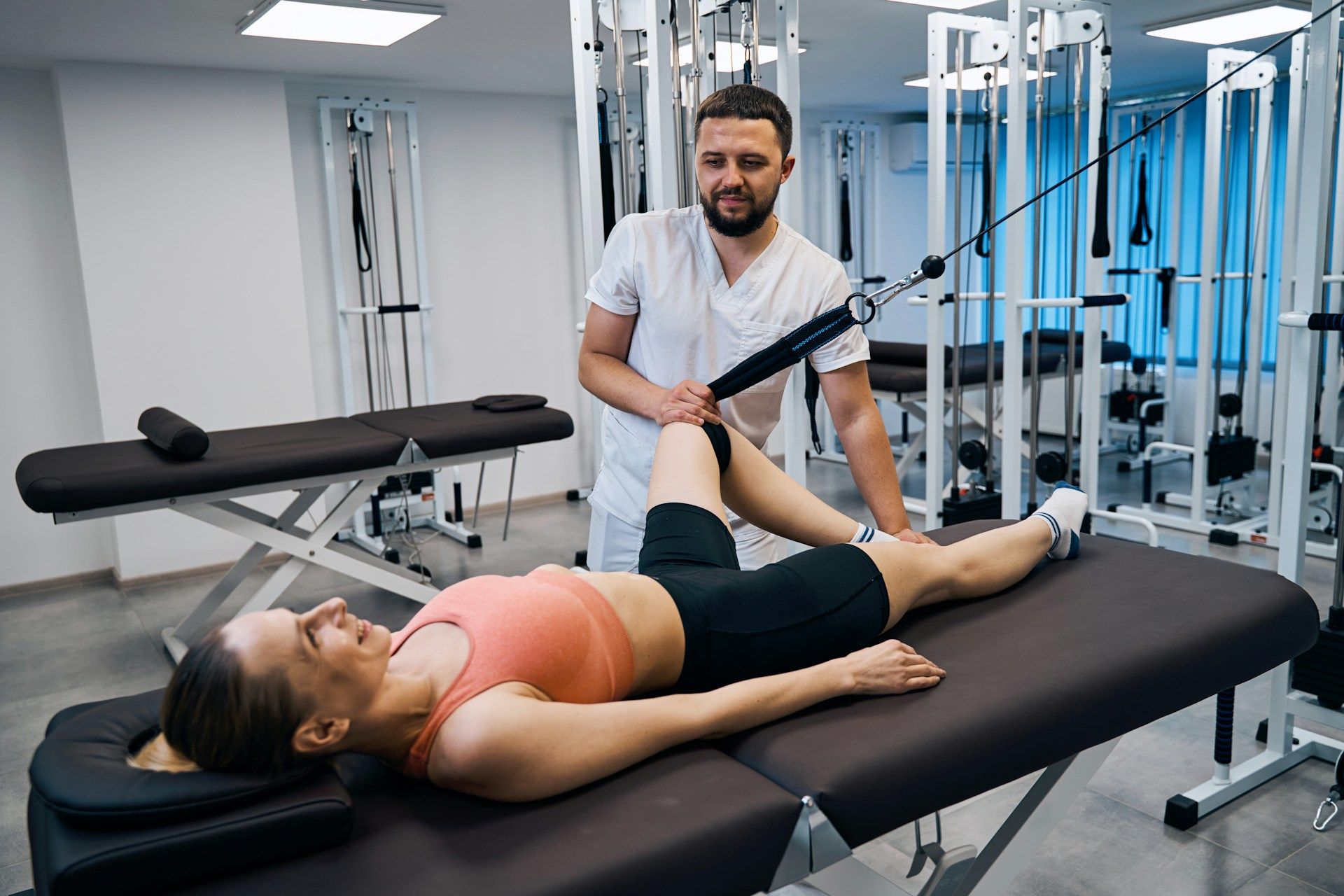Why Sleeping Positions Matter for Spine and Neck Pain
It's easy to overlook how we sleep as a part of our daily routine. But did you know that the way you position your body at night can impact spine and neck health? Proper sleeping posture plays a vital role in maintaining these areas of our body. This is because our spine works tirelessly to support us throughout the day, and how we rest it at night matters. With the right sleeping positions, you can make sure that pain doesn't interfere with your day-to-day life.
Now, you might wonder, what makes a sleeping position "good"? Good sleep posture keeps your spine in a natural alignment, providing relief from tension and preventing strain. This means that every joint, especially in your neck and back, is supported properly, reducing the risk of waking up with aches and discomfort. The peace of mind knowing you might wake up feeling refreshed and pain-free? That's something truly achievable with the right sleep habits.
The Impact of Poor Sleeping Positions
Sleeping in the wrong position can have significant consequences on your spine and neck. When your body is not aligned correctly, it results in unnecessary stress and strain on these crucial areas, which can lead to discomfort and stiffness. This is particularly true for those who may already experience issues like chronic pain or injury.
Consider these common issues caused by poor sleep posture:
- Neck Pain: Often results from sleeping on your stomach, which forces your head to turn to one side.
- Back Pain: Occurs when there's a lack of support for the natural curve of your spine.
- Joint Discomfort: Especially in your shoulders and hips if the alignment is neglected.
Maintaining a relaxed and well-supported posture while resting is key to avoiding these problems. Our necks, for instance, should remain aligned with our spines to minimize pressure. So, reassessing your sleeping habits and adjusting them to relieve stress on your back and neck can make a world of difference.
Best Sleeping Positions for Spine and Neck Health
Finding the best sleeping position can transform your nightly rest and keep pain at bay. Whether you’re a back, side, or stomach sleeper, there are techniques you can use to enhance your comfort and spinal alignment. Let’s take a look at some optimal positions to try:
1. Back Sleeping: Lying on your back is often recommended as it evenly distributes weight and supports the spine in its natural curve. Place a pillow under your knees to maintain this curve and reduce lower back pressure.
2. Side Sleeping: Curling up slightly on your side with a pillow between your knees can help keep the spine straight, easing tension in your lower back and preventing misalignment.
3. Avoiding Stomach Sleeping: If possible, try not to sleep on your stomach, as this position often twists your neck and arches your back unnaturally.
Once you’ve identified the best position for your needs, ensure your pillow offers adequate support. It should hold your head at the right height to keep your spine aligned without tilting or straining your neck. Making these small adjustments can promote greater comfort and help you wake up refreshed and pain-free, ready to tackle the day.
Using Pillows and Supports for Better Sleep
To enhance your sleep environment, consider the type of pillow you use and how it supports your posture. The right pillow can do wonders in keeping your spine aligned. Whether you sleep on your back or side, pillow choice matters a lot.
- Back Sleepers: A thinner pillow that supports the head without lifting it too high works best. Adding a small roll or towel under your neck can offer added support. A pillow under the knees helps maintain the natural curve of the spine.
- Side Sleepers: A firmer, thicker pillow that fills the space between the ear and the mattress is ideal. Make sure it’s not too high or low to prevent neck strain. Placing a pillow between your knees can keep your hips and spine aligned.
Keep in mind that mattress support also plays a role. A mattress that’s too soft allows you to sink in, potentially messing with alignment. On the other hand, one that’s too firm might not provide sufficient support. Test different setups to find what works best for you. Remember, supportive bedding choices are key to improving sleep quality.
Tips for Transitioning to Healthier Sleep Positions
Adjusting to a new sleep position can feel a bit daunting at first. But with a few helpful tips, you can ease into it smoothly and without pressure.
1. Gradual Changes: Try altering your position a little at a time. Start by adopting the new posture for a short period each night, gradually increasing the duration.
2. Use of Props: Supportive pillows and rolled-up towels can help maintain the new position, making the transition easier. Use them to bolster yourself into place, reducing the likelihood of shifting back.
3. Consistent Effort: Stick with the changes. If it feels uncomfortable initially, give it time. Often, it takes a few weeks for your body to adjust.
Adopting new habits can be a challenge, but these small actions lead to significant benefits, aiding in better sleep and reduced pain.
Moving Towards Pain-Free Sleep in Cumming and Jasper
Creating these changes in your sleep routine can greatly influence how you feel upon waking up, paving the way for days full of energy and minimal discomfort. By exploring the right sleeping positions, using helpful props, and transitioning with patience, one can manage neck and spine pain more effectively.
Residents of Cumming and Jasper, consider how these tips fit into your lifestyle. A simple change in your daily routine can be your first step toward improving your well-being. Embrace this approach to sleep, and discover the benefits that a good night's rest can bring to your life.
Sleep is crucial to maintaining a well-aligned spine and neck. To achieve this, understanding and adopting the best sleeping positions is key. If you're experiencing discomfort despite these changes, it's worth exploring further solutions. Visit Apollo Spine and Pain Center to learn how
interventional spine and pain management can help alleviate persistent pain and improve your quality of life. Start your journey toward restful, pain-free nights with our expert assistance in Cumming and Jasper.












